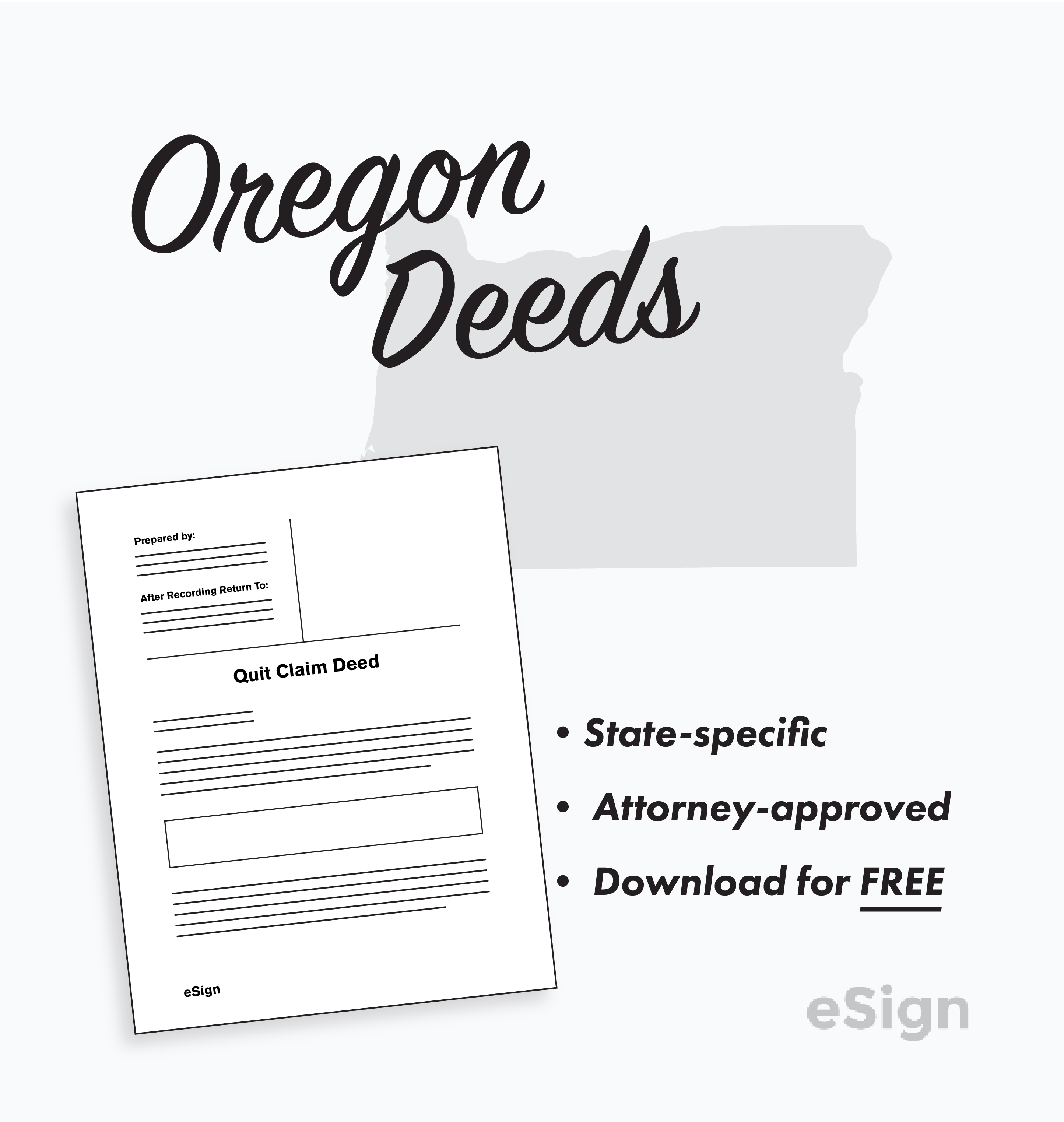By Type (6)
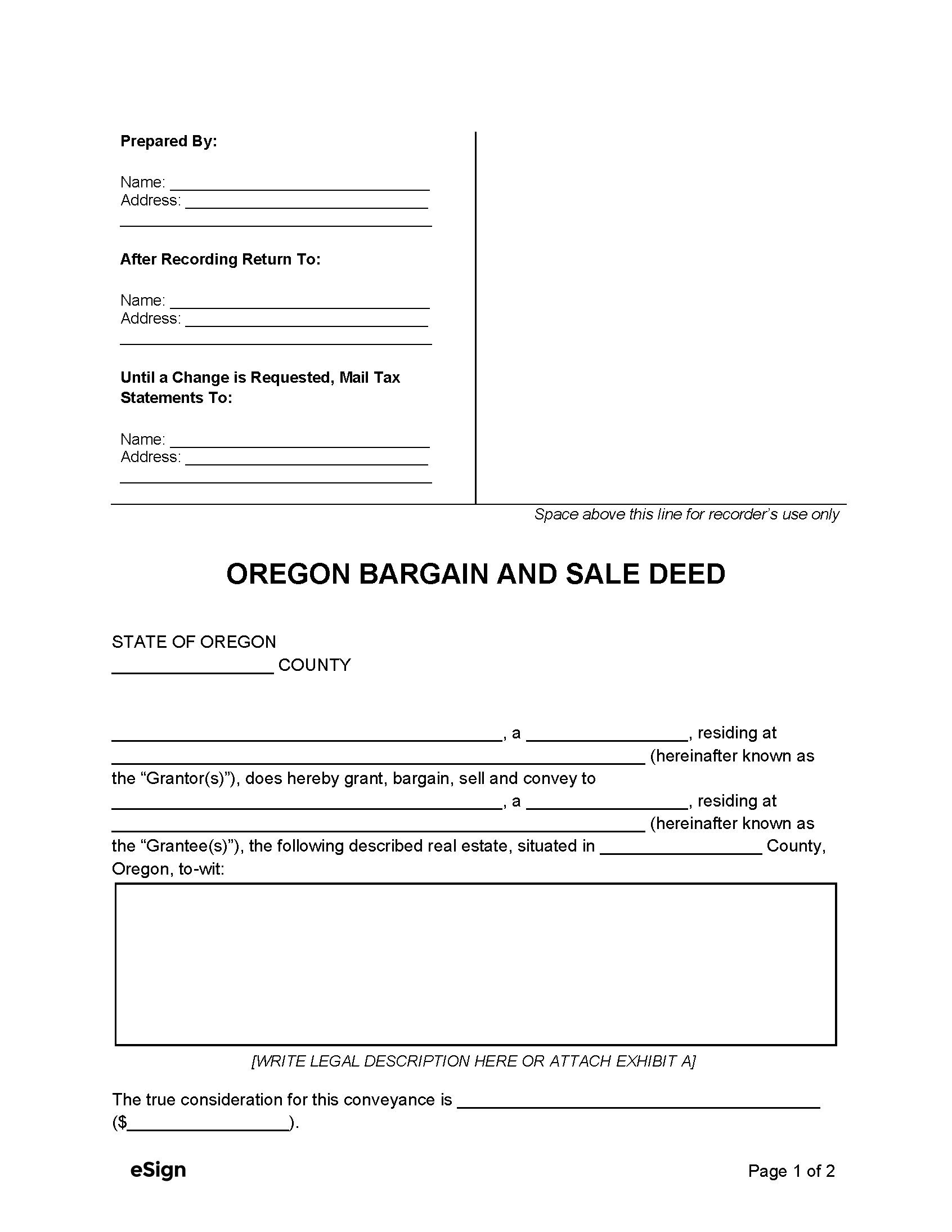 Bargain and Sale Deed – Affirms the grantor’s right to transfer ownership but does not guarantee a clear title. Bargain and Sale Deed – Affirms the grantor’s right to transfer ownership but does not guarantee a clear title.
|
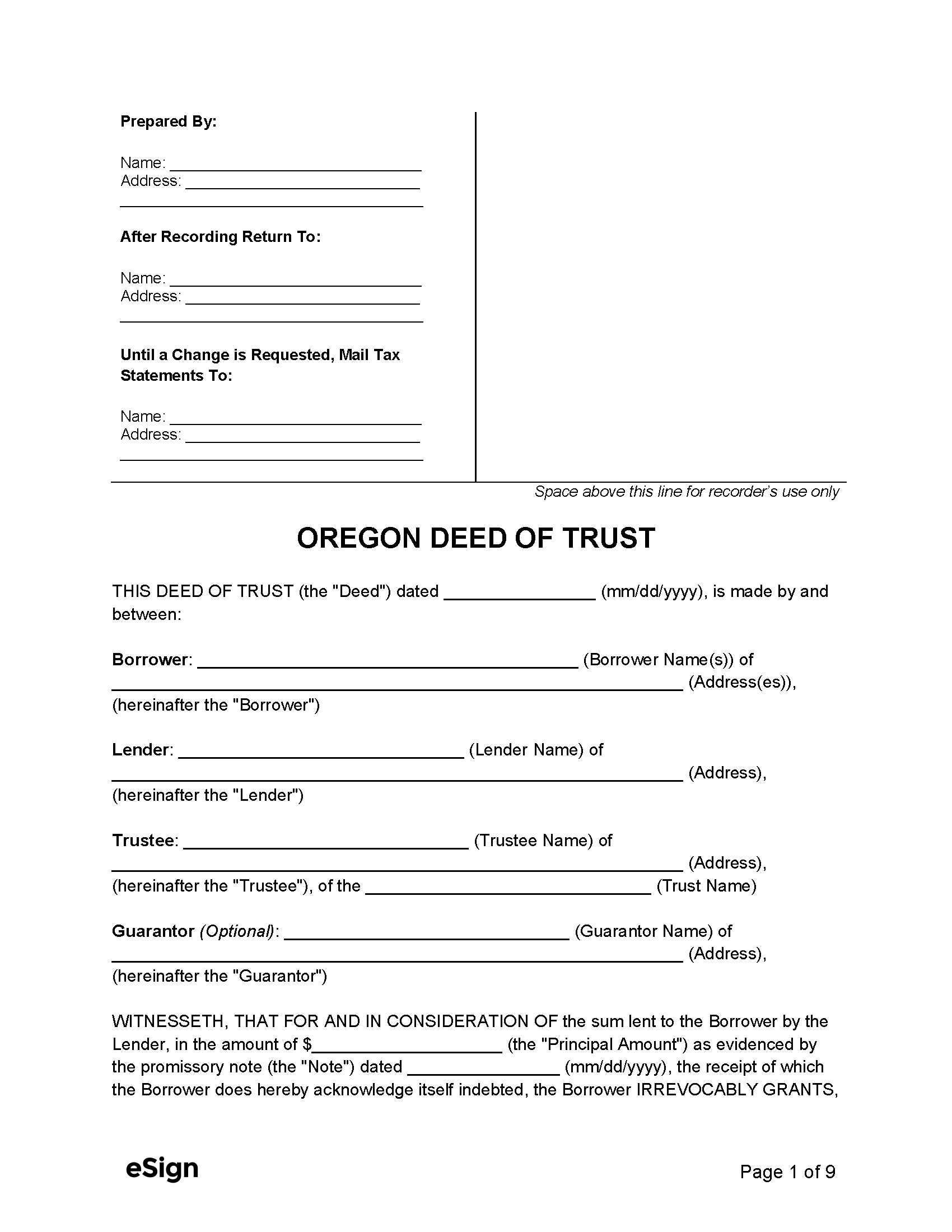 Deed of Trust – Transfers the grantor’s property title to a trustee as collateral for a real estate loan. Deed of Trust – Transfers the grantor’s property title to a trustee as collateral for a real estate loan.
|
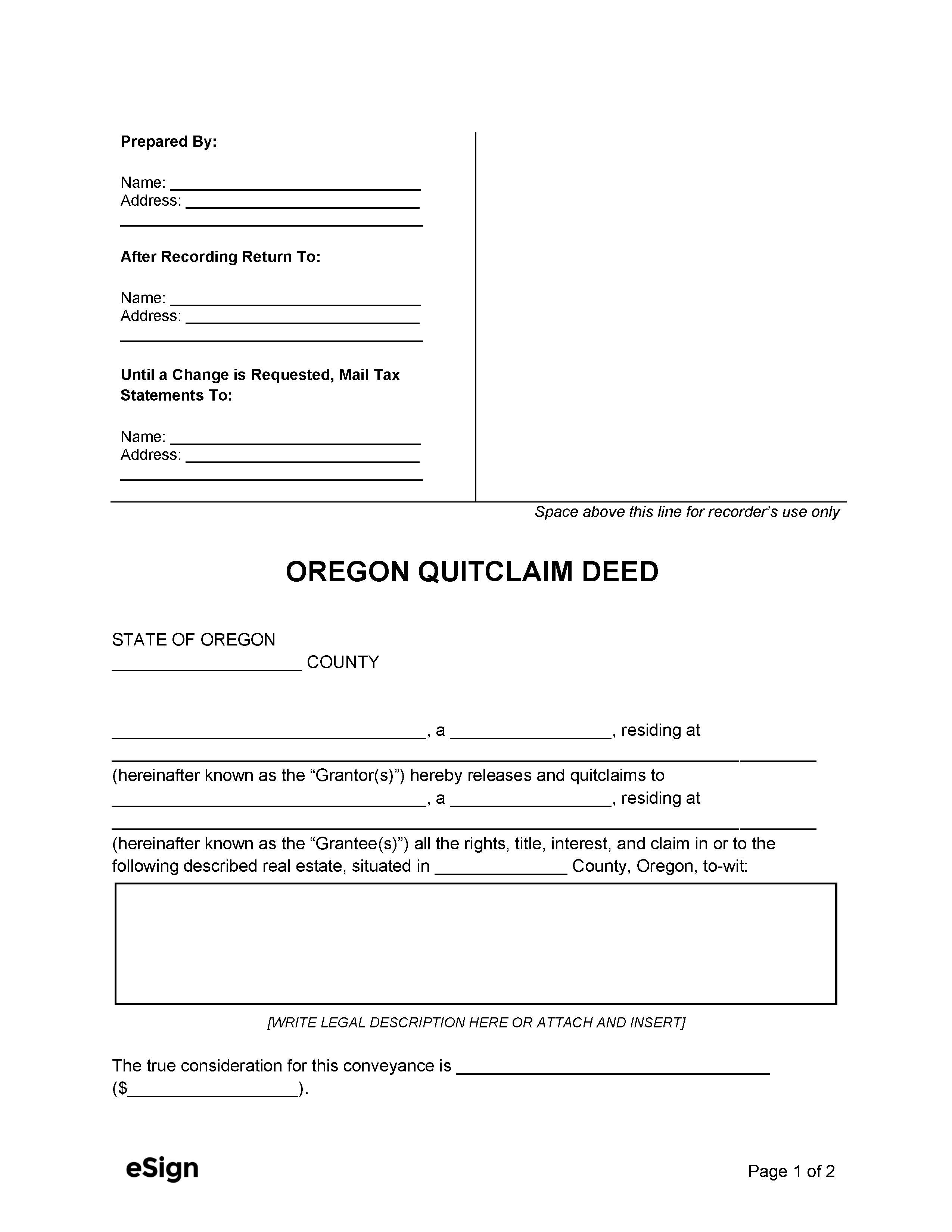 Quit Claim Deed – A deed that provides no warranties or guarantees that the grantor has the right to convey. Quit Claim Deed – A deed that provides no warranties or guarantees that the grantor has the right to convey.
|
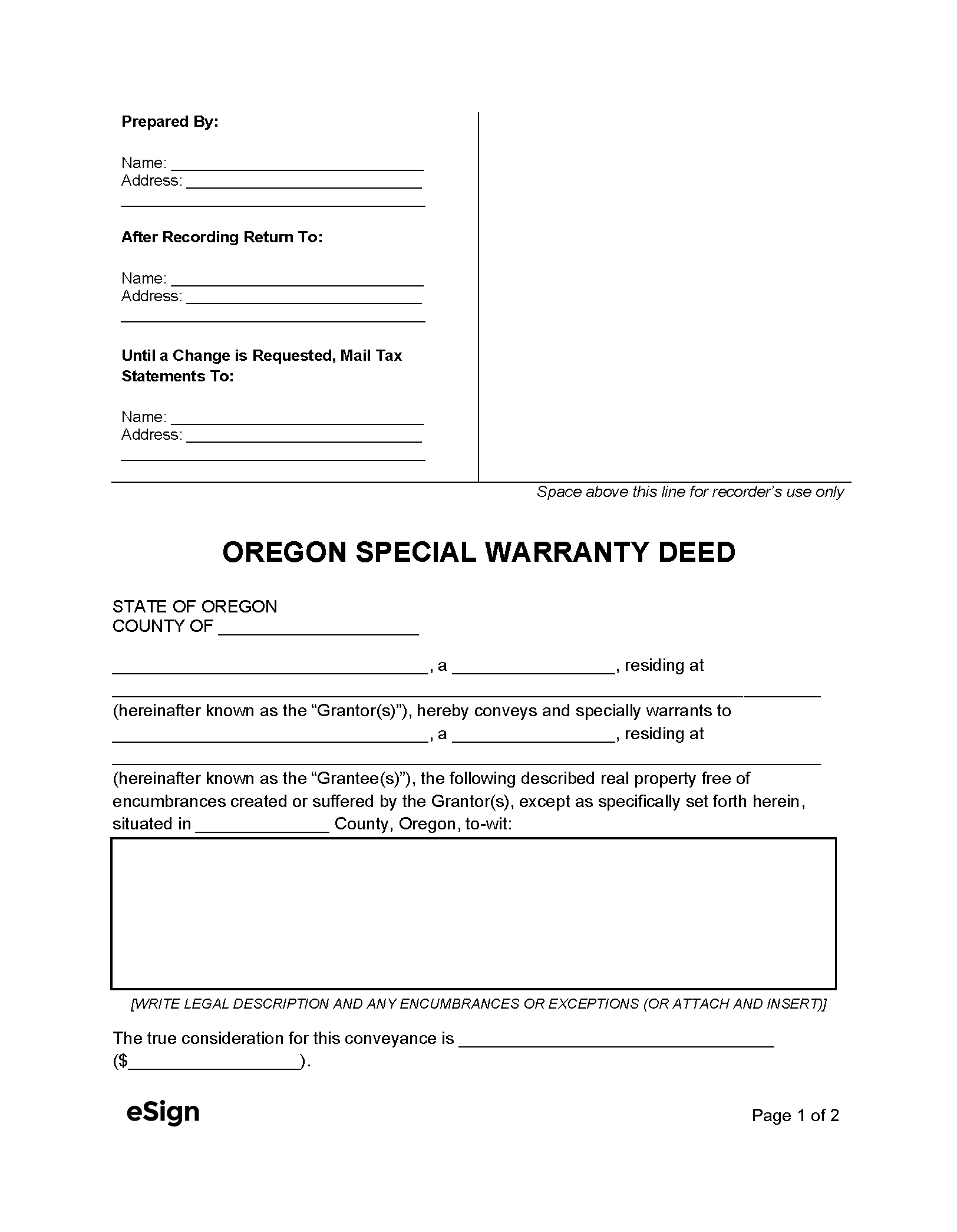 Special Warranty Deed – Guarantees the grantor will protect the grantee against title defects resulting from their period of ownership. Special Warranty Deed – Guarantees the grantor will protect the grantee against title defects resulting from their period of ownership.
|
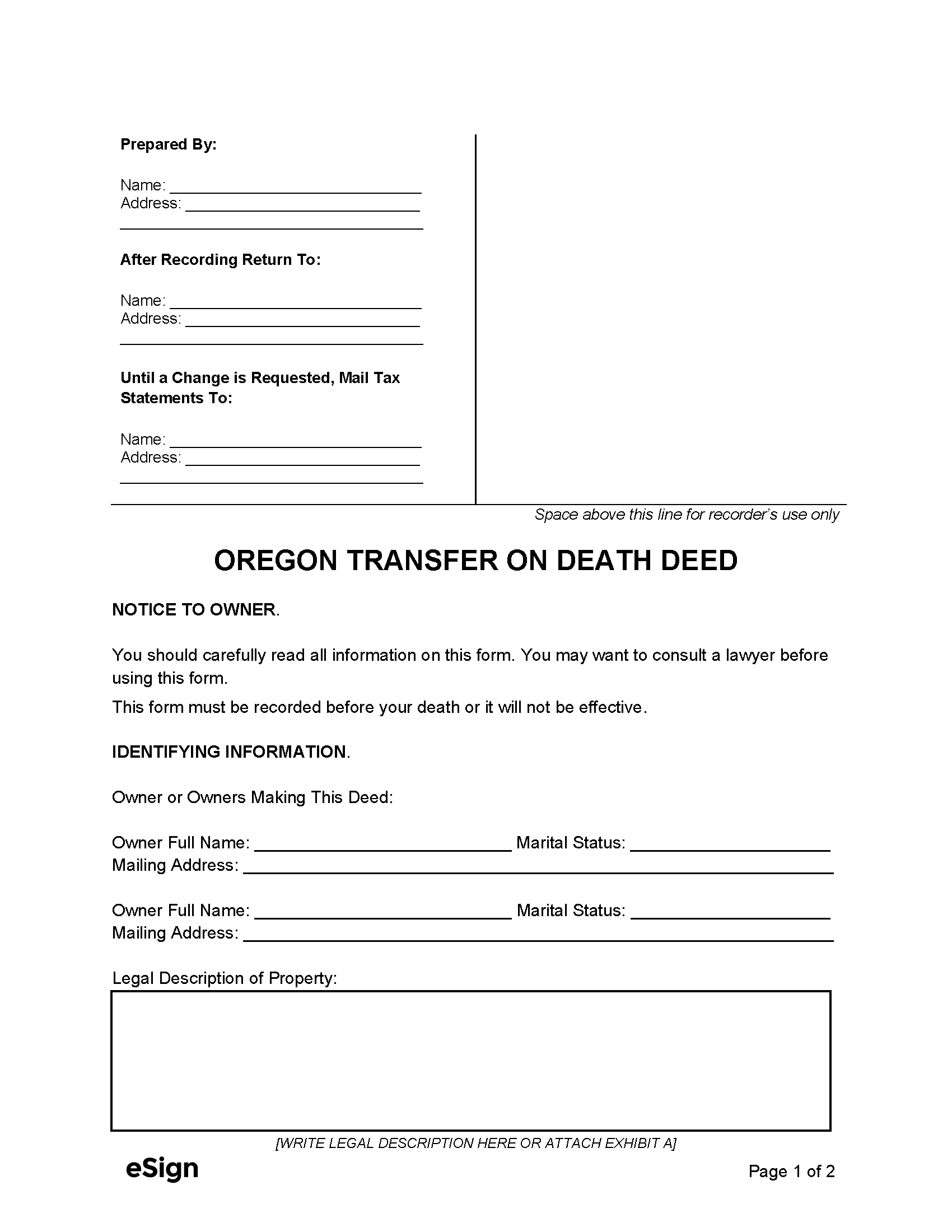 Transfer on Death Deed – Used to name a beneficiary who will receive property upon the owner’s death. Transfer on Death Deed – Used to name a beneficiary who will receive property upon the owner’s death.
|
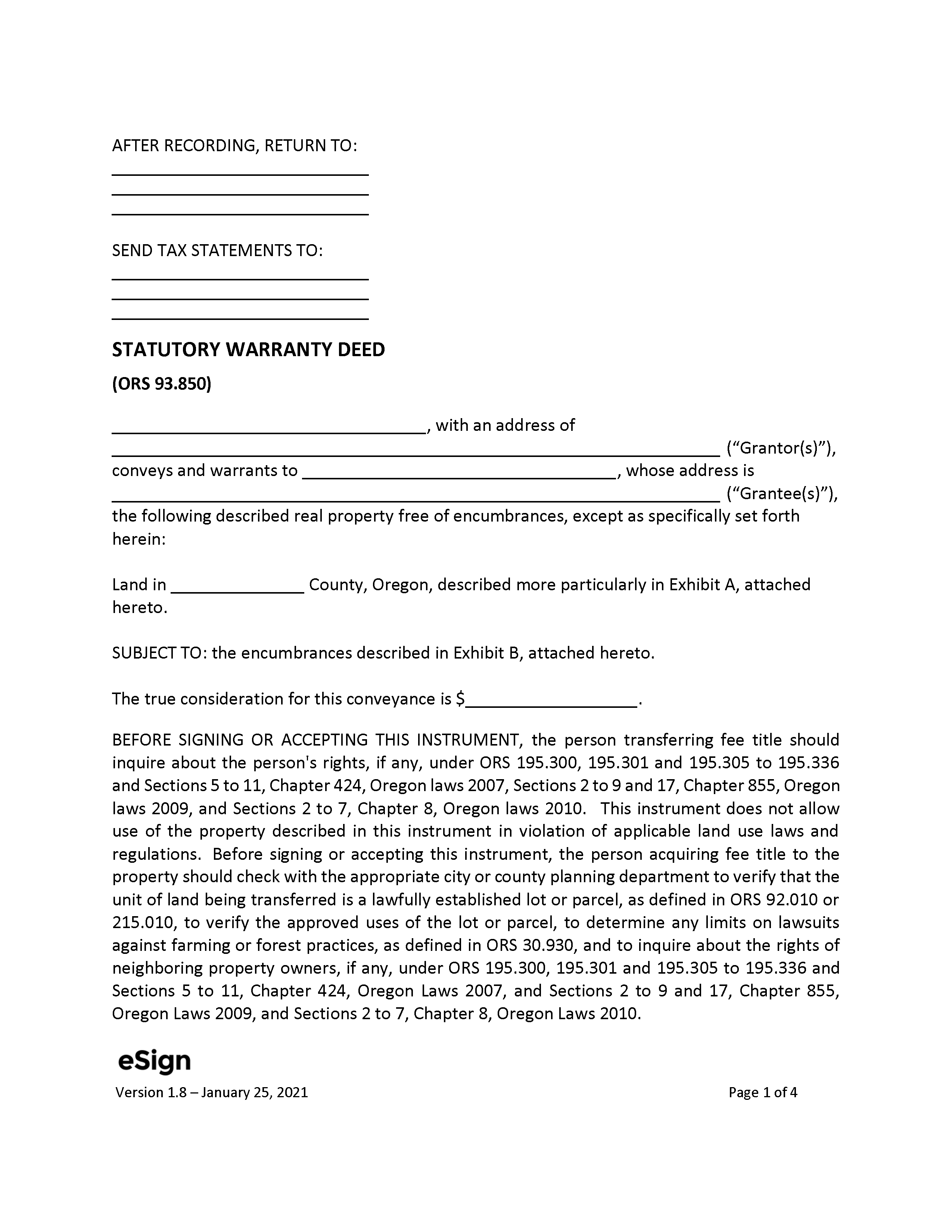 Warranty Deed – Fully protects the grantee against any potential title encumbrances. Warranty Deed – Fully protects the grantee against any potential title encumbrances.
|
Formatting
Paper – Cannot be larger than 8.5″ in width and 14″ in length
Font – Min. 10-point font[1]
Recording
Signing Requirements – In Oregon, the grantor’s signature must be acknowledged in the presence of a notary public.[2]
Where to Record – Completed property deeds are recorded with the County Clerk.[3]
Cost – $5 per page (at the time of this writing)[4]
